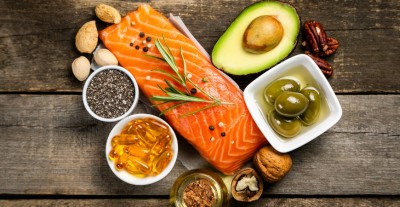ADHD in children: what if diet made the difference?
They struggle to stay in place, forget their belongings, switch from one activity to another without finishing... And what if they were suffering from more than just a simple "lack of concentration"? ADHD, Attention Deficit Hyperactivity Disorder, is today one of the most diagnosed conditions in children. A diagnosis that worries, raises questions, and sometimes divides.
In parallel, more and more parents are questioning the link between behavior, diet, and the well-being of their children. Because while nutrition is not a magic wand, it may well play a more important role than we think in managing this issue...
ADHD in children: a growing reality
ADHD is a neurodevelopmental disorder that affects about 5% of children in the world, according to the WHO. In Europe, the numbers vary depending on the diagnostic methods, but the trend is on the rise. In France, it is estimated that one to two students per class are affected. In Switzerland, the numbers are comparable.
This disorder is characterized by a marked inattention, a motor hyperactivity and a impulsivity. These three dimensions can be present together or separately. The child with ADHD has difficulty concentrating, following instructions, often interrupts others and acts without thinking. This can lead to academic difficulties, family or social conflicts, and chronic stress for the parents.
But behind this diagnosis hides a much more complex reality. ADHD is not just a matter of "bad upbringing" or too much screen time, as it is sometimes mistakenly heard. It is a imbalance of cerebral development which affects executive functions, emotional regulation, and selective attention.
In addition to this, there is an explosion of research, showing that ADHD would not be solely of genetic origin.prenatal environment (exposure to stress, tobacco, endocrine disruptors), the nutritional deficiencies Early, and even the intestinal microbiota could play a role in the expression or severity of the disorder. It is at the intersection of these factors that a consideration of diet makes perfect sense.
What are the causes of ADHD in children ?
ADHD does not have a single origin. This disorder is recognized as being multifactorial, meaning that it results from the interaction of several genetic, biological, and environmental causes. Understanding this complexity is essential to adopt a comprehensive and effective approach.
1. A strong genetic component: Studies on twins show that genetic transmission accounts for approximately 70 to 80% cases of ADHD. If a parent is affected, the risk for the child is greatly increased. Mutations on certain genes involved in the regulation of dopamine, a central neurotransmitter in attention and impulsivity, are particularly singled out.
2. Prenatal and perinatal factors: Exposure of the fetus to cigarettes, alcohol, specific drugs, or significant maternal stress can disrupt neurological development. Similarly, low birth weight or prematurity increase the risks.
3. The impact of diet and microbiota: In recent years, studies have shown that deficiencies in certain nutrients (omega-3, iron, zinc, magnesium) could worsen symptoms. In addition, an unbalanced gut microbiota, for example in cases of repeated antibiotic therapy or highly processed diet, seems to be linked to a higher risk of attention and emotional regulation disorders in children.(Frontiers in Neuroscience, 2020)
4. Modern environmental factors: Excessive screen time, lack of exposure to nature, a sedentary lifestyle, sleep deficit, or even overexposure to refined sugar are also suspected of potentially creating favorable conditions for ADHD, without being the only causes.
In other words: if genetics sets a foundation, it is indeed the environment in which the child develops which can activate or attenuate the expression of the disorder. That's why an integrative approach including nutrition, lifestyle, and educational support is becoming increasingly essential to support the affected children.
What are the early signs to look out for ?
Detecting ADHD as early as possible allows for more effective management. Although each child is unique, certain behaviors can alert parents or teachers. These signs often appear. before the age of 7 years, even if they are sometimes confused with a simple lively temperament or a normal development phase.
1. Constant agitation: The child seems unable to sit still. He gets up in class, moves constantly, climbs everywhere, runs for no apparent reason. This hyperactivity far exceeds the typical energy for his age.
2. A significant attention deficit: He has difficulty concentrating, listening, or following even simple instructions. He quickly moves from one activity to another without finishing them, which directly impacts his academic success.
3. An impulsivity that is difficult to manage: The child often interrupts, answers without waiting for the end of the questions, interrupts others' games or activities. They may also have trouble waiting their turn, which causes social conflicts.
4. Frequent sleep disturbances: Difficulty falling asleep, night awakenings, restless sleep... These problems are common in children with ADHD, and contribute to worsening the symptoms the following day.
5. Unstable emotional regulation: The child may have sudden bouts of anger, switch from laughter to tears in a few minutes, or react excessively to minor frustrations. These reactions are not related to ill will, but to a neurodevelopmental difficulty in managing emotions.
These signals must always be observed in terms of their duration, intensity, and their impact on daily life. It is also important to evaluate them in different contexts (school, home, leisure). If several of these signs have been present for more than six months and affect schooling or social life, an evaluation by a health professional is strongly recommended.
What role does nutrition play in managing ADHD ?
For several years, research has been exploring the impact of diet on attention and hyperactivity disorders. Although ADHD is a complex neurodevelopmental disorder, nutritional adjustments can contribute to it. improve the symptoms and support the good brain development of the child.
Certain diets or supplements are currently being studied for their potential benefits, particularly in relation to:
➤ Omega-3 (EPA and DHA) : These polyunsaturated fatty acids, found in fatty fish or as supplements, play a key role in neuronal functioning. Several studies have shown that adequate intake of omega-3 can reduce symptoms of inattention and impulsivity.
➤ Magnesium, iron, and zinc: Micronutrient deficiencies are common in children with ADHD. However, these minerals are essential for the regulation of brain activity, the synthesis of neurotransmitters (such as dopamine) and stress management.
➤ Diets low in additives: Some artificial colorings, preservatives or chemical flavors are suspected of causing harm.worsen hyperactive behaviors. Targeted eviction approaches, like the Feingold diet, have shown positive effects in some children, provided they are well supervised.
In parallel, excess of refined sugar and the ultra-processed foods can contribute to spikes in blood sugar, increased irritability, and mental fatigue. Therefore, implementing a more natural, balanced diet rich in essential nutrients can act as a valuable complementary lever.
It is precisely to help parents and professionals better understand these issues that BN Nutrition has developed a Specialized online training on child nutrition. This training, based on solid scientific foundations, offers a practical approach to support the overall development of the child, including in the context of disorders such as ADHD, without falling into the traps of miracle diets or guilt-inducing discourse.
Diet cannot do everything, but it can clearly be part of a comprehensive care strategy - just like tutoring, physical activity or psychological support.
What are the other complementary levers to nutrition ?
Nutrition is an essential pillar, but it alone cannot meet all the needs of a child diagnosed with ADHD. The management must be multidisciplinary and individualized, based on the profile of each child, the severity of symptoms, and their family and school environment.
➤ Regular physical activity: Many studies show that movement - particularly endurance or structured activities (swimming, martial arts, cycling...) - improves concentration, emotional regulation and reduces restlessness. Exercise acts as a natural regulator of the nervous system, promoting the production of dopamine and serotonin.
➤ Sleep hygiene: Children suffering from ADHD often have sleep disorders. However, a lack of rest worsens impulsivity, mental fatigue, and disorganization. Regular routines, reducing screens in the evening, and a calm environment can make a significant difference. A complete onlin training on this subject exists and helps to improve sleep quality in both adults and younger ones.
➤ The psycho-affective environment: Parental and school support plays a decisive role. A better one understanding of behaviors Related to ADHD, calm communication, structuring guidelines and recognition of the child's progress can transform everyday life. Positive approaches (reinforcement, anticipation, visualization) are often more effective than repetitive punishments or criticisms.
By combining these levers with a adapted diet, We can create an environment conducive to a child's development, mitigate their difficulties and reinforce their natural resources. The goal is not to "normalize" or "correct" the child, but to provide an environment in which they can better regulate themselves and express their full potential.
5️⃣ What dietary adjustments can help ?
Diet alone cannot correct a complex disorder like ADHD. However, it can alleviate some symptoms, especially those related to concentration, hyperactivity, or mood swings. Here are the main avenues validated by research and clinical experience.
➤ Limit foods with a high glycemic index: Theglycemic index (GI) measures the ability of a food to quickly raise blood sugar levels. The higher a food's GI, the more it causes a spike in blood sugar followed by a sudden drop, which can generate nervousness, irritability and decreased attention. In children, these variations can worsen emotional instability and concentration difficulties. Therefore, products such as industrial sweet cereals, white bread, cakes, sodas, pasteurized fruit juices, overcooked potatoes or candies. Conversely, we will favor foods with a low to moderate Glycemic Index such as oat flakes, legumes, whole fruits (apple, pear), sweet potatoes or whole grain sourdough breads.
➤ Reduce additives, colorants and ultra-processed foods: Several studies (including that of McCann et al., 2007) have highlighted the deleterious effect of certain artificial colorings (E102, E110, E122, E124) and preservatives such as sodium benzoate (E211) on children presenting symptoms of ADHD. These substances are common in the sweet drinks, candies, industrial sauces, snacks and flavored desserts. Therefore, it is recommended to promote a raw food, home and natural, by carefully reading the labels of the products.
➤ Strengthen the intake of key micronutrients: Deficiencies in certain minerals and fatty acids are often observed in children with attention disorders. The most frequently mentioned are:
- Omega-3 (EPA & DHA): Essential for good brain function. They can be found in the fatty fish (sardine, mackerel, wild salmon), linseed oil, nuts or in the form of BN Omega 3 supplements.
- Zinc : Present in the Eggs, meats, pumpkin seeds, lentils. He plays a role in the regulation of dopamine.
- Iron : Necessary for the transport of oxygen in the brain. It is found in the offal, the black pudding, the legumes, or as a supplement.
- Magnesium: Known for its calming effects. Sources: dark chocolate, banana, almonds, green vegetables, or with our Magnesium + Vitamin C.
In some cases, a well-dosed and controlled treatment of dietary supplements can help fill the gaps. However, a prior consultation is recommended.
➤ Take care of breakfast: Too many children go to school with a sweet breakfast, deficient in protein and not very satisfying. This type of meal (fruit juice + white bread + spread) causes a insulin peak followed by a sudden drop in energy. It is preferable to suggest:
- A whole fruit (apple, kiwi or not too ripe banana),
- Egg, plain yogurt, sheep's cheese or nut puree,
- A whole wheat sourdough bread or oatmeal porridge.
To avoid: coffee, energy drinks, sweetened industrial cereals, which overstimulate the nervous system or cause an energy crash.
➤ Promote foods rich in tryptophan: This amino acid is a precursor to serotonin, a neurotransmitter related to calm, mood regulation and sleep. He is present in the Eggs, turkey, fish, dairy products, pumpkin seeds, banana. It can also be integrated via an add-on such as BN Zen, which helps to calm the children at the end of the day.
➤ Maintain a balanced intestinal flora: The gut-brain axis is central to cognitive development. An impoverished or inflamed microbiota can disrupt the neurochemical regulation. For this, we will favor:
- Of fermented foods (raw sauerkraut, kefir, unsweetened natural yogurt),
- Of prebiotic fibers (leeks, garlic, onions, Jerusalem artichoke),
- And if necessary, a course of treatment PRO-B 4.8 Billion Probiotics, suitable from the youngest age.
What science says (or does not say) today
The scientific literature around ADHD and nutrition is becoming increasingly abundant. Although not all effects are yet perfectly understood, a consensus is emerging on the idea that a quality diet can modulate certain symptoms for some of the children involved. Here is an overview of what research tells us so far:
➤ The effects of omega-3: Numerous studies, especially the one published in the Journal of Child Psychology and Psychiatry (Bloch & Qawasmi, 2011), confirm that supplementation with EPA/DHA modestly improves ADHD symptoms, particularly on theattention and impulsivity. These effects are more significant in children with a documented deficiency in essential fatty acids.
➤ Food additives: The famous study by McCann (2007), published in The Lancet, established a link between some food dyes and the increase in hyperactivity among children. As a result, several European countries now require specific labeling for additives suspected of having harmful effects on behavior.
➤ Specific diets: Restrictive diets, such as the Feingold diet or the oligo-antigenic diet, have shown encouraging results in some cases, but remain. difficult to apply in everyday life and are not suitable for all children. TheEFSA (The European Food Safety Authority) recommends caution and a personalized approach rather than a systematic one.
➤ Micronutrients and intestinal flora: Studies, such as that by Rucklidge et al. (2014), show that children with ADHD often have lower rates of iron, zinc, magnesium and one imbalance of the intestinal microbiota. Supplementation in these specific cases seems to improve overall health and certain cognitive functions. However, the Randomized controlled studies remain few in number.
In summary, if nutrition cannot be considered as a substitute treatment for traditional medical protocols (medications, behavioral therapies, psycho-educational support), however, she can act as complementary lever to improve the quality of life for children and their families.
Training parents and professionals: a lever for better support
Today, families are facing an overload of information, often contradictory, about nutrition and behavioral disorders. Between advice gleaned from social networks, non-professional opinions, and sometimes vague diagnoses, it is becoming urgent to strengthen the transmission of good benchmarks. That's where training and support take on their full meaning.
Parents are not alone: pediatricians, educators, teachers, nutritionists and psychologists all have a role to play in a child's journey. But for real change to happen, it is necessary to have...understandable tools, scientifically based and easily applicable on a daily basis. It is with this in mind that the BN Nutrition training was developed, dedicated to the child nutrition.
Without going into pedagogical details here, this training is as much for parents concerned about better feeding their child, that in professionals from the educational, medical or sports field. It specifically addresses:
- The basics of infant nutrition (needs, intake, common mistakes).
- The role of nutrition in concentration, sleep, immunity, growth.
- Concrete strategies for gradually changing eating habits.
This type of approach aims to create a bridge between science and everyday life families. Because beyond dietary supplements, diets, and diagnostics, the most important thing remains understand how the child's body works... to better support him, sustainably.
FAQ - Nutrition, ADHD and behavior in children
1. Can diet really influence the symptoms of ADHD ?
Yes, more and more studies are suggesting a link between diet and attention disorders. A diet high in quick sugars, additives, and ultra-processed foods can exacerbate symptoms of hyperactivity, while a balanced diet rich in omega-3, fiber and micronutrients can improve concentration, stress management, and sleep quality. It's not a curative treatment, but rather a support lever not negligible.
2. What foods should be avoided in a hyperactive child ?
Foods with a high glycemic index (candy, sodas, pastries), ultra-processed products rich in colorants (tartrazine, allura red), preservatives (sodium benzoate) and sweeteners (aspartame) should be avoided or limited. These compounds can cause glycemic spikes, hyperexcitability and sometimes inflammatory reactions.
3. And the foods to prioritize ?
Favor foods rich in omega-3 (fatty fish, nuts, flax seeds), in zinc (eggs, legumes), in iron (lean meats, lentils), in magnesium(dark chocolate, almonds) and in tryptophan (banana, brown rice, turkey). These nutrients support the production of neurotransmitters like serotonin and dopamine, essential for emotional and cognitive balance.
4. Does breakfast play a particular role ?
Absolutely. A breakfast high in protein (egg, plain yogurt, dried fruit) and low in fast sugars promotes concentration by avoiding glycemic fluctuations. It is recommended to avoid industrial juices, sweet cereals or sweet drinks, which promote fatigue and attention disorders late in the morning.
5. Can a dietary supplement be useful ?
Yes, especially in cases of proven deficiencies. Supplements based on omega-3 (EPA/DHA), zinc, magnesium or iron can support the nervous system. At BN Nutrition, some specific products such as our Omega 3 | Krill Have been designed to support concentration.
6. Is there a link between gut flora and behavior ?
Yes. The microbiota plays a fundamental role in regulating mood and behavior via the gut-brain axis. An imbalance in the flora (dysbiosis) can promote irritability, hyperactivity, and digestive disorders. The introduction of. probiotics, of soluble fibers (oat flakes, apples) and fermented foods (kefir, natural yogurt) is beneficial.
7. Is there a specific diet against ADHD ?
Some diets like the Feingold or the oligo-antigenic diet have been proposed, but their effects remain variable depending on the children. The most important thing is to establish a diet. Balanced, anti-inflammatory and personalized, avoiding the high-risk categories while supporting the key contributions.
8. Why take a course on infant nutrition ?
Because understanding nutritional, digestive and behavioral mechanisms allows one to better support their child on a daily basis. Our BN Nutrition online Training provides the keys to better choose foods, identify warning signals, establish healthy eating routines and understand the links between nutrition, development and behavior.












